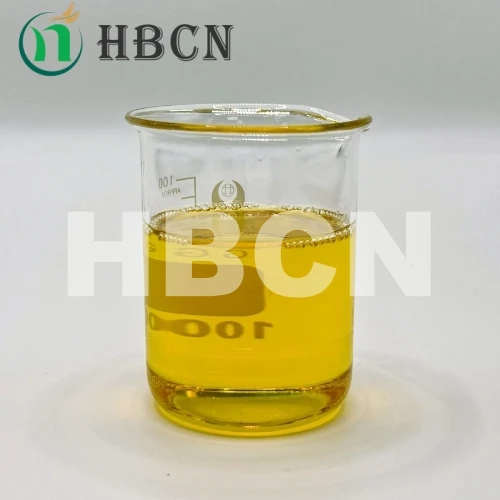
Déc . 23, 2024 16:22 Back to list
Effective Lime Sulfur Fungicide for Controlling Fungal Diseases in Plants and Gardens
Lime Sulfur Fungicide An Overview
Lime sulfur, a well-known fungicide, has been used in agricultural practices for many years. Derived from a mixture of quicklime (calcium oxide) and sulfur, this compound is particularly notable for its effectiveness against a variety of plant diseases caused by fungi and bacteria. As a natural remedy, lime sulfur has gained popularity among organic farmers and gardeners who seek to minimize the use of synthetic chemicals.
The primary active components of lime sulfur are calcium and sulfur, both of which play critical roles in plant health. Sulfur is essential in the synthesis of amino acids and proteins, and it helps to strengthen plant tissues, making them more resistant to disease. When applied to plants, lime sulfur acts as a contact fungicide. It works by disrupting the cellular processes of fungal pathogens, effectively preventing their growth and reproduction.
Lime Sulfur Fungicide An Overview
In organic farming, the use of lime sulfur aligns with the principles of sustainable agriculture. It is allowed under various organic certification programs, offering a safer alternative to synthetic fungicides. Farmers appreciate lime sulfur not only for its efficacy but also for its relatively low impact on the environment. When used according to recommended guidelines, lime sulfur poses minimal risk to beneficial insects, wildlife, and water sources.
lime sulphur fungicide

However, like any agricultural treatment, lime sulfur must be used judiciously. Application timing is crucial; it is most effective when applied during the dormant season before new growth begins. This timing helps to ensure that the fungicide penetrates the plant surfaces effectively while minimizing the risk of phytotoxicity, which can occur when plants are exposed to chemicals during sensitive growth stages.
Preparation and application of lime sulfur require careful attention. Farmers should mix quicklime and sulfur in the correct proportions to create an effective solution. The resulting liquid should be diluted appropriately with water before application. It is vital to follow safety precautions, including wearing gloves, goggles, and masks during preparation, as the caustic nature of quicklime can cause severe skin irritation and respiratory issues if inhaled.
In addition to its fungicidal properties, lime sulfur also provides essential nutrients to plants. Applying lime sulfur can help correct calcium deficiencies in the soil, which can ultimately improve plant vigor and productivity. By using lime sulfur as both a fungicide and a nutrient source, farmers can promote healthier plants and more resilient cropping systems.
In conclusion, lime sulfur fungicide represents a longstanding, versatile, and organic-friendly solution for managing plant diseases. Its dual action as a fungicide and a source of essential nutrients makes it a valuable addition to the toolkit of farmers and gardeners alike. While it is important to use lime sulfur responsibly, it stands out as an effective means of protecting crops while adhering to sustainable agricultural practices. By harnessing the power of nature, lime sulfur continues to play a significant role in promoting plant health and ensuring the success of agricultural systems around the world.
-
Dicamba Herbicide for Creeping Charlie – Effective & Selective Weed Control Solution
NewsJun.10,2025
-
Premium Penthiopyrad Fungicide for Effective Crop Protection Compare with Carbendazim & Copper Fungicides
NewsJun.10,2025
-
Top Products Containing Bifenthrin Effective Insecticide Solutions
NewsJun.10,2025
-
Powerful Lambda Cyhalothrin & Emamectin Benzoate Insecticide
NewsJun.10,2025
-
Emamectin Benzoate 5% Wholesale Supplier - Premium Quality
NewsJun.10,2025
-
Indoxacarb PubChem Key Pesticide Properties & Benefits
NewsJun.09,2025
